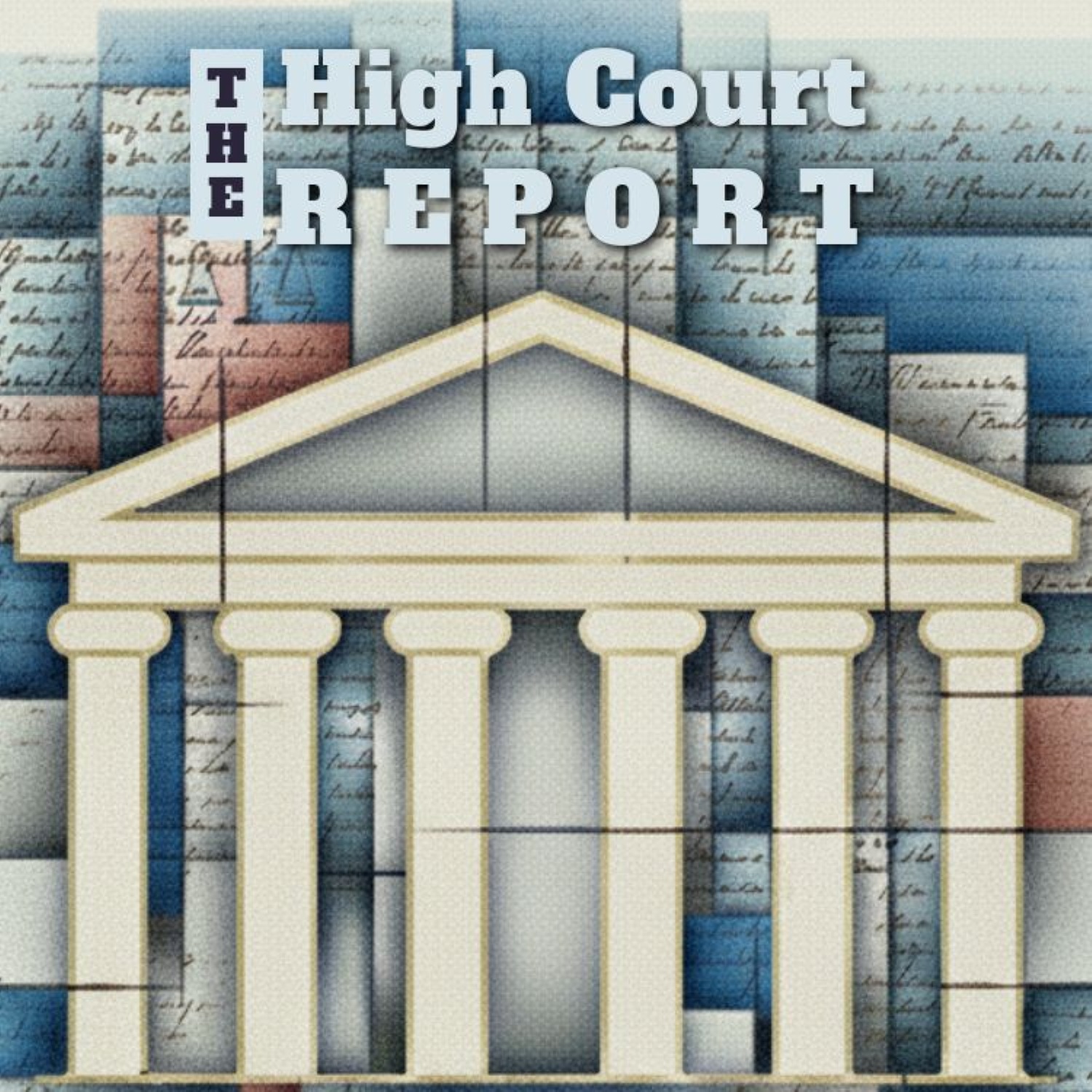Episode 26
Case Preview: Coney Island Auto Parts v. Burton | The Time Trap Tangle: When Void Judgments Gain Validity
Coney Island Auto Parts v. Burton | Case No. 24-808 | Oral Argument Date: 11/5/25 | Docket Link: Here
Question Presented: Whether Federal Rule of Civil Procedure 60(c)(1) imposes any time limit to set aside a default judgment void for lack of personal jurisdiction.
Overview
This episode examines a deceptively simple civil procedure case that could fundamentally reshape how federal courts handle void judgments, creating a constitutional tension between centuries-old legal principles and modern procedural rules about timing requirements for challenging judgments that courts never had authority to enter.
Episode Roadmap
Opening: The Void Judgment Paradox
- November 5th, 2025 oral argument date
- Circuit split: Sixth Circuit stands alone against every other federal circuit
- Core tension: Can procedural rules validate what should never have existed?
- Affects every federal court nationwide using Rule 60
Background: The Seven-Year Journey
- Vista-Pro Automotive bankruptcy in Nashville, Tennessee
- February 2015: Default judgment against Coney Island Auto Parts for $48,696.21
- Coney Island claims never received proper service - no personal jurisdiction
- 2020: Trustee registers judgment in New York, freezes $100,000 in bank accounts
- March 2022: Seven years later, Coney Island files Rule 60(b)(4) motion to vacate
The Central Legal Question
- Rule 60(b)(4): Courts can vacate judgments that "are void"
- Rule 60(c)(1): "Any motion under Rule 60(b) must be made within a reasonable time"
- Does "reasonable time" apply to truly void judgments?
- Fundamental question: Can time limits apply to legal nullities?
Lower Court Journey
- Tennessee bankruptcy court grants motion to vacate
- Sixth Circuit reverses 2-1, applies "reasonable time" requirement
- Creates circuit split with every other federal circuit
- Supreme Court grants certiorari to resolve nationwide inconsistency
Constitutional Framework: Due Process and Jurisdiction
- Personal jurisdiction: Court's authority over parties
- Void judgment: "No judgment at all" - legal nullity from inception
- Due process concerns: Enforcing judgments without proper notice
- Historical principle: Void judgments attackable at any time
Petitioner's Arguments (Coney Island Auto Parts):
Argument 1: Logical Impossibility
- "If a judgment is void immediately upon entry, how could the passage of time vivify it?"
- Void means legal nullity - cannot gain validity through delay
- Procedural rules cannot breathe life into what never existed
Argument 2: Historical Practice and Tradition
- Centuries of precedent allowing challenges to void judgments at any time
- 1946 Advisory Committee intended "reasonable time" for voidable, not void judgments
- Advisory Committee statements distinguish void from voidable judgments
Argument 3: Judicial Consensus
- Every circuit except Sixth Circuit recognizes exception for void judgments
- Well-established understanding that void judgments are special category
- Circuit split demonstrates widespread acceptance of traditional rule
Respondent's Arguments (Burton):
Argument 1: Plain Text Controls
- Rule 60(c)(1): "A motion under Rule 60(b) must be made within a reasonable time"
- Rule 60(b)(4) is part of Rule 60(b) - text is unambiguous
- Every tool of statutory interpretation supports time limits
Argument 2: Rule Structure and Drafting History
- Drafters knew how to create exceptions - did so for Rules 60(b)(1)-(3)
- Advisory Committee rejected proposal imposing no time limits for void judgments
- Committee agreed "all motions should be made within a reasonable time"
Argument 3: Procedural vs. Substantive Distinction
- Time limits don't validate void judgments - they impose procedural requirements
- Distinction between judgment validity and challenge procedures
- Prevents "flagrantly inequitable conduct" and protects finality interests
Episode Highlights
Key Legal Concepts Explained
- Personal Jurisdiction: Court's legal authority over parties to a lawsuit
- Void Judgment: Legal nullity with no validity from the moment entered
- Default Judgment: Judgment entered when defendant fails to respond
- Rule 60(b)(4): Federal rule allowing relief from void judgments
- Service of Process: Legal requirement to provide proper notice of lawsuit
- Circuit Split: When federal appeals courts reach conflicting decisions
- Due Process: Constitutional requirement of fair legal proceedings
